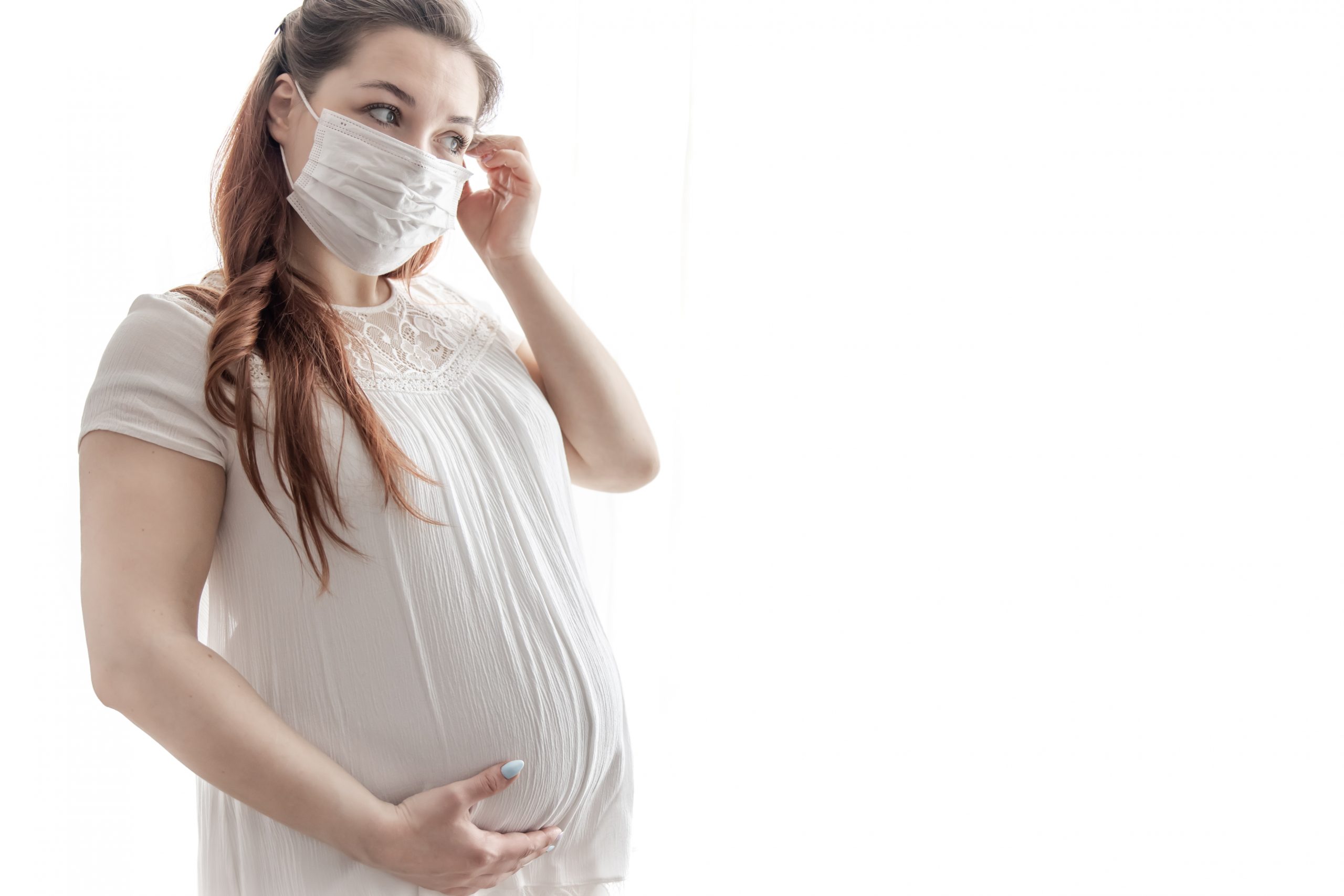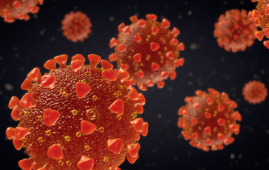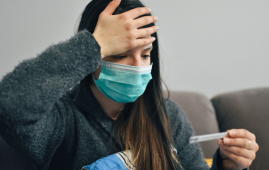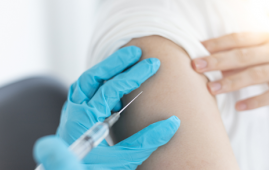

According to recent research from UNSW Sydney, women who were pregnant during the COVID-19 epidemic experienced worse mental health than those who weren’t.
Dr. Susanne Schweizer from UNSW Science and colleagues from Europe and the US gathered information on mental health at various times both during and after pregnancy in a longitudinal research involving 742 pregnant participants.
In a previous investigation, they discovered that women who were going through pandemic pregnancy and who had a propensity for worrying felt lonely, or had a low tolerance for uncertainty were most affected by COVID-19-related stress.
A follow-up study that was released today in JAMA Network Open examined COVID-19-related stress 1.5 years after the initial investigation. The research team discovered that being anxious about the pandemic while pregnant not only had an impact on the participants’ personal mental health but was also linked to an increase in their babies’ moodiness. “The Center for Disease Control identifies pregnant women as a vulnerable group in terms of physical health during pandemics and disease outbreaks,” says Dr. Schweizer. “Based on these findings, and those of others, we should also identify pregnant women as a vulnerable group in terms of mental health.”
Importantly, the research team compared the pregnant women who took part in the study to gender, age, and country-matched controls. “So, you have someone who’s as similar as possible, but who isn’t pregnant at that point in time. And we looked at the impacts of pandemic-related stress on their mental health,” says Dr. Schweizer.
Pandemic stress was measured using the Pandemic Anxiety Scale, which measures individuals’ concerns about the pandemic, including worries about contracting the virus, having enough food, and job-related impacts.
Unsurprisingly, COVID-19-related stress was associated with more mental health problems in both women who were pregnant and those who weren’t. “But not all women were affected in the same way. There were vulnerability factors, such as lack of social support, increased loneliness, worry, and intolerance of uncertainty, which had a greater impact on mental health in the context of pandemic-related stress in pregnant women, compared to their non-pregnant counterparts,” says Dr. Schweizer.
At the final time point, on average 18 months after the initial assessment, the team administered the same set of measures to the cohort.
“But this time, we also administered a measure on postpartum distress, which captures mental health symptoms that are related to the postpartum period, such as thoughts of harm befalling the child or inflicting harm on a child, and we also measured infant mood and behavior.”
The follow-up study found that COVID-19-related stress during pregnancy, captured in the first paper, was significantly associated with poor postpartum maternal mental health outcomes.
“What’s always going to predict your mental health best is your mental health at a previous time point,” says Dr. Schweizer. So I was surprised that pandemic-related stress during pregnancy adversely impacted maternal depression, anxiety, and distress that far into the future, even when we controlled for their previous levels of mental well-being.
But others besides moms also suffered as a result. The likelihood that their infants would exhibit what experts refer to as “negative affectivity” was higher for individuals who were under stress due to the pandemic.
Infants with negative affectivity are more likely to scream and have a harder time getting to sleep, and they are also less inclined to try anything new.
“Negative affectivity is a measure of infant mood. But it’s been associated with a range of behavioral problems, and importantly, also cognition. It has also been associated with developmental outcomes across the lifespan.”
While there is already robust literature showing that maternal postpartum mental health is significantly associated with infant behavior, this is one of the first studies to examine the association of stress during pregnancy with mother and infant mental health outcomes during the pandemic.
Dr. Schweizer herself has lived the experience of pandemic pregnancy.
“I was very lucky in that I knew I was in a position where I could continue working, so I didn’t have those economic pressures, but I was a high-risk pregnancy. And then my child was born premature,” says Dr. Schweizer.
“That’s a distressing experience anyway, even under normal circumstances, but it was very much compounded by the fact that I was separated from my other children, I was never able to see my daughter with my husband together until much later.
“And so for me, it was a very direct and personal experience of how this pandemic impacted the peripartum period.”
She argues more support is urgently needed for pregnant people’s mental health as part of standard pregnancy care. “Pregnancy is a period of vulnerability for mental health problems. Intense and rapidly fluctuating moods and emotions are a normal part of pregnancy and after birth, many people will experience intrusive unwanted thoughts. But we are not told enough about this.
“Pregnant individuals need to be given information about what to expect, what is common, and when they should seek help.”
The results of this study have motivated Dr. Schweizer and her team to develop online educational materials to inform people about the connection between pregnancy and mental health and to advance this topic in the dialogue about prenatal care.
more recommended stories
 Study Reveals Cold May Impact SARS-CoV-2 Infection Rates
Study Reveals Cold May Impact SARS-CoV-2 Infection RatesThe Unexpected Protective Role of Rhinoviruses.
 Heart, Lung, & Brain Risks Persist in COVID-19 Survivors
Heart, Lung, & Brain Risks Persist in COVID-19 SurvivorsA French nationwide study reveals that.
 How COVID-19 and Vaccines Differ in Heart Inflammation
How COVID-19 and Vaccines Differ in Heart InflammationA team of international researchers led.
 Long COVID: Extended Paxlovid Treatment Offers Hope
Long COVID: Extended Paxlovid Treatment Offers HopeA new case series by UC.
 RSV Vaccine Response in Immunocompromised Adults
RSV Vaccine Response in Immunocompromised AdultsAccording to Johns Hopkins Medicine researchers,.
 Gut Microbiome Predicts Long COVID Risk
Gut Microbiome Predicts Long COVID RiskIn a recent pre-print study published.
 COVID-19 & Autoimmune Care Hope: Natural Proteins
COVID-19 & Autoimmune Care Hope: Natural ProteinsRecent research at Umeå University reveals.
 FasL Inhibitor Asunercept Speeds COVID-19 Recovery
FasL Inhibitor Asunercept Speeds COVID-19 RecoveryA new clinical trial demonstrates that.
 Impact of COVID-19 mRNA Vaccine on Myocardial Scarring
Impact of COVID-19 mRNA Vaccine on Myocardial ScarringA new study found a greater.
 Long-term Cognitive and Psychiatric Issues in COVID-19 Survivors
Long-term Cognitive and Psychiatric Issues in COVID-19 SurvivorsA new study published in The.

Leave a Comment